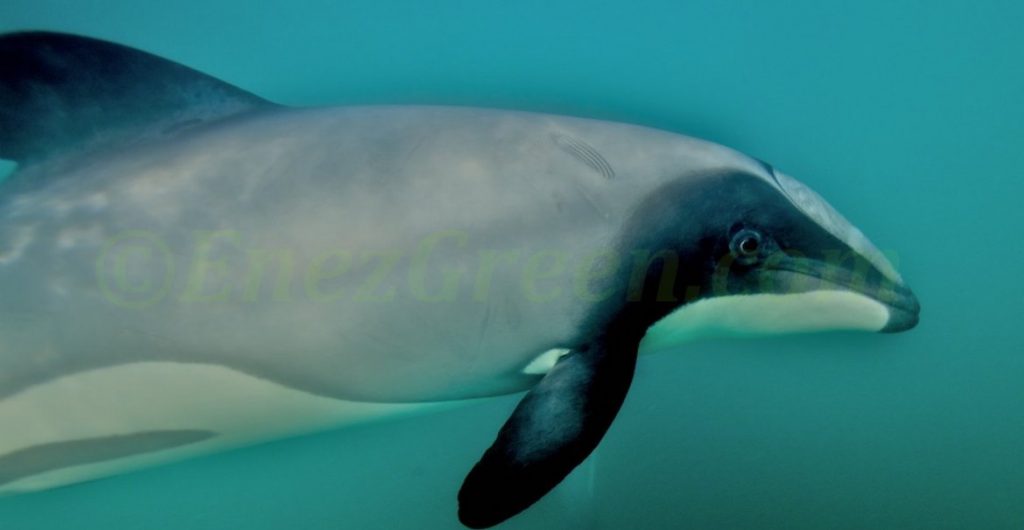Maui dolphin population will soon reach a no return point
If fishing is not promptly forbidden in their habitat, scientists from the International Whaling Commission (IWC) fear that Maui’s dolphins only found off west coast of the North Island, will reach a no return point.
Inspired by a Maori name of god, Maui Dolphins (Cephalorhynchus hectori maui) stand out for their rounded dorsal fin, often compared to Mickey ears, and their small size that does not exceed 137 cm in length. They gathered under the name of New Zealand dolphins with a close subspecies, known as dolphin named Hector (Cephalorhynchus hectori hectori), who lives in three small groups only, around the south island.
In a report published recently, the CBI noted the lack effective action to prevent Maui dolphins to become “bycatch” of industrial fishing.
In 2012, the government appointed an Expert Panel which determined that gill nets and trawling kill about five dolphins Maui every year. Dr Liz Slooten from Otago University, believes that the extensions introduced fishing exclusion zones have reduced the level of bycatch Maui between 3.28 to 4.16 individuals per year – 54 times the sustainable limit!
Read more about final call to save Maui endangered dolphin
“New Zealand can’t keep on promoting its image as clean and green country while leaving the Maui dolphin die”
New reports are ringing the alarm about the plight of these dolphins whose population has fallen to the lowest with 42 individuals surviving a quarter of females of childbearing age.
Accused of inaction, the government has put forward the ban trawling and drift netting over a maritime area of 6,000 square kilometers. But the measure is not sufficient for scientists and environmental organizations calling for a ban of fishing on the entire habitat area of Maui dolphin.
According to Greenpeace, New Zealand can not continue to promote worldwide the image of “clean and green country”, while leaving the Maui dolphin die.
“How damning scientific reports will be needed for the government to act” asked Russel Norman, Greenpeace NZ. “Protecting the dolphins from extinction is part of what to do when you love this country. We sell this country with (the slogan)” swim with dolphins.




